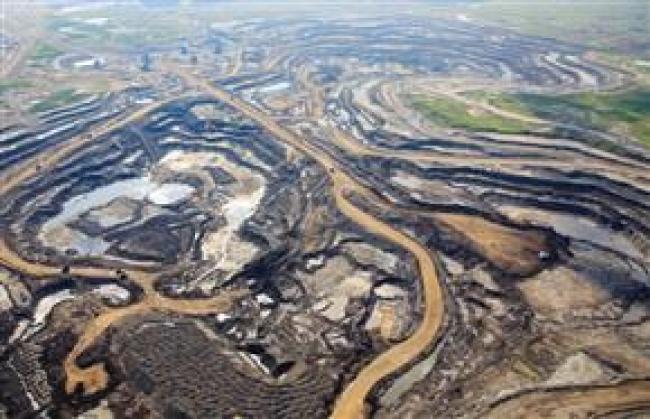Articles Menu

On Feb. 15, it’s decision day. UBC’s Board of Governors will finally provide an answer to growing calls that the university stop investing in the fossil fuel industry. Students launched the appeal for fossil fuel divestment in 2013, and were soon joined by faculty, staff, alumni and elected officials.
For the last two and half years UBC has failed to act on divestment, and the costs — both financial and moral — are mounting.
According a recent estimate, the University of Toronto lost a staggering $550 million by failing to divest from the fossil fuel industry when students first put forward the demand, also in 2013.
For UBC, this raises the question: How much has our own university’s inaction on divestment cost?
It’s not likely to be a pretty picture. UBC appears to have had an even larger proportion of its investments in the fossil fuel industry than the University of Toronto.
As we’ve been explaining to the university for almost three years, the vast majority of global fossil fuel reserves — the main assets on the books of these fossil fuel companies — must remain in the ground if the world hopes to hold climate change to two degrees — or better yet, 1.5 degrees.
That is because there is a hard limit — known as the “carbon budget” — to how much additional climate pollution can be pumped into the atmosphere if we are to meet those targets. When compared to the already-proven reserves of fossil fuels around the world, the carbon budget allows for less than a third of reserves to be extracted and burned.
This is not my assertion — it is simply a scientific fact. The carbon budget has been outlined in the scientific journal Nature, the reports of the Intergovernmental Panel on Climate Change, and the work of the Carbon Tracker Initiative at the London School of Economics, among others.
The governor of the Bank of England, Mark Carney, has also stated that “the vast majority of reserves are unburnable.” He recently concluded a major assessment of risks to financial markets from these “stranded assets,” warning of “potentially huge” losses for investors.
This brings us back to UBC’s investments. Even while we know we can’t safely burn the majority of the already-proven reserves, the fossil fuel industry insists on seeking out and developing even more reserves, including the most extreme and difficult to extract. There is a kind of grim folly at play here, which UBC directly participates in with its investment dollars.
Let’s be clear: We all share responsibility for climate change — fossil fuel users and producers alike. But the fossil fuel industry has played a uniquely destructive role.
First, the industry’s core business model is to profit from the extraction of huge volumes of fossil fuels for combustion.
Second, the industry has worked tirelessly for decades — using its economic might and lobbying prowess — to delay, dilute and block climate policy.
Lobbying by the oil and gas industry has far outstripped any other sector in Canada. Over the years, the industry’s efforts have included everything from fighting tooth and nail against the Kyoto Protocol — ultimately with success — right up to delaying and undermining federal climate policies, as documents released under Access to Information recently revealed.
The industry has also played a critical role in funding climate change denial. In addition, investigative reports last year revealed how Exxon (along with other fossil fuel companies) buried or ignored their own in-house climate change research as far back as the 1980s.
The damage inflicted by these actions is incalculable, and it’s a pattern of behaviour that helped set us back two decades or more in addressing the climate crisis.
Make no mistake: Until we highlight and confront that destructive role, the fossil fuel industry will continue its deep-pocketed efforts, fighting for the right to monetize as much of its carbon assets as possible.
Fossil fuel divestment presents UBC with an important opportunity to shine a light on this reality, and live up to its claims of excellence in sustainability.
Divestment is not a difficult decision. The moral stakes are high, and every major constituency across the university has shown its support.
For example, students passed a decisive university-wide referendum for divestment. Faculty held their own vote in favour. In addition, two of the largest staff groups on campus have passed resolutions of support. Even beyond the campus, local MLA David Eby, Vancouver Deputy Mayor Andrea Reimer, and alumnus and Juno Award winner Dan Mangan have also publicly backed the campaign.
The UBC Board of Governors will reach a crossroads on Feb. 15. In the face of an unprecedented global climate crisis, which side of history will they be on?
Alex Hemingway is a PhD candidate in political science at the University of B.C.